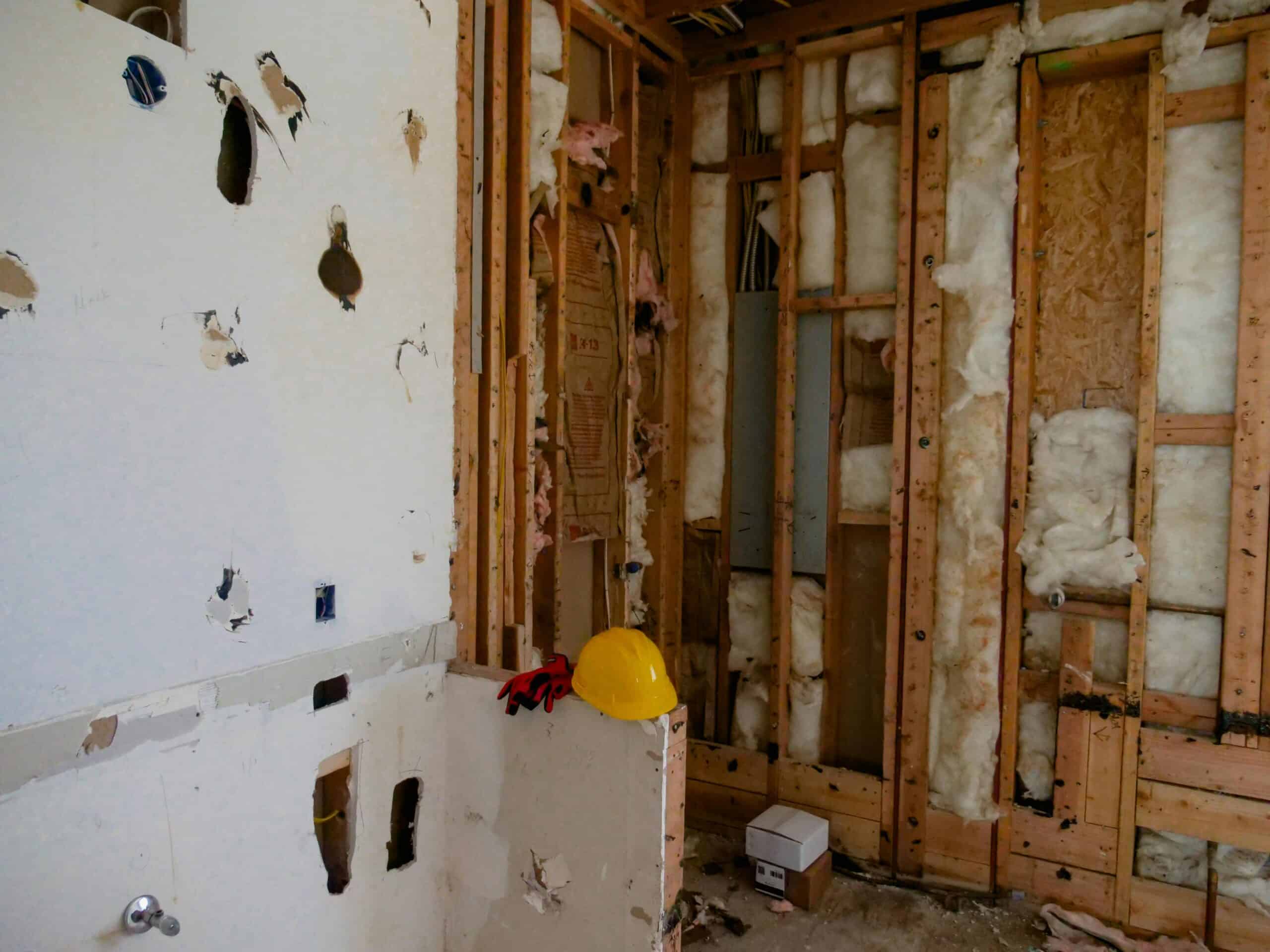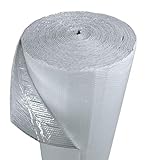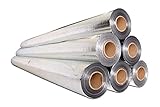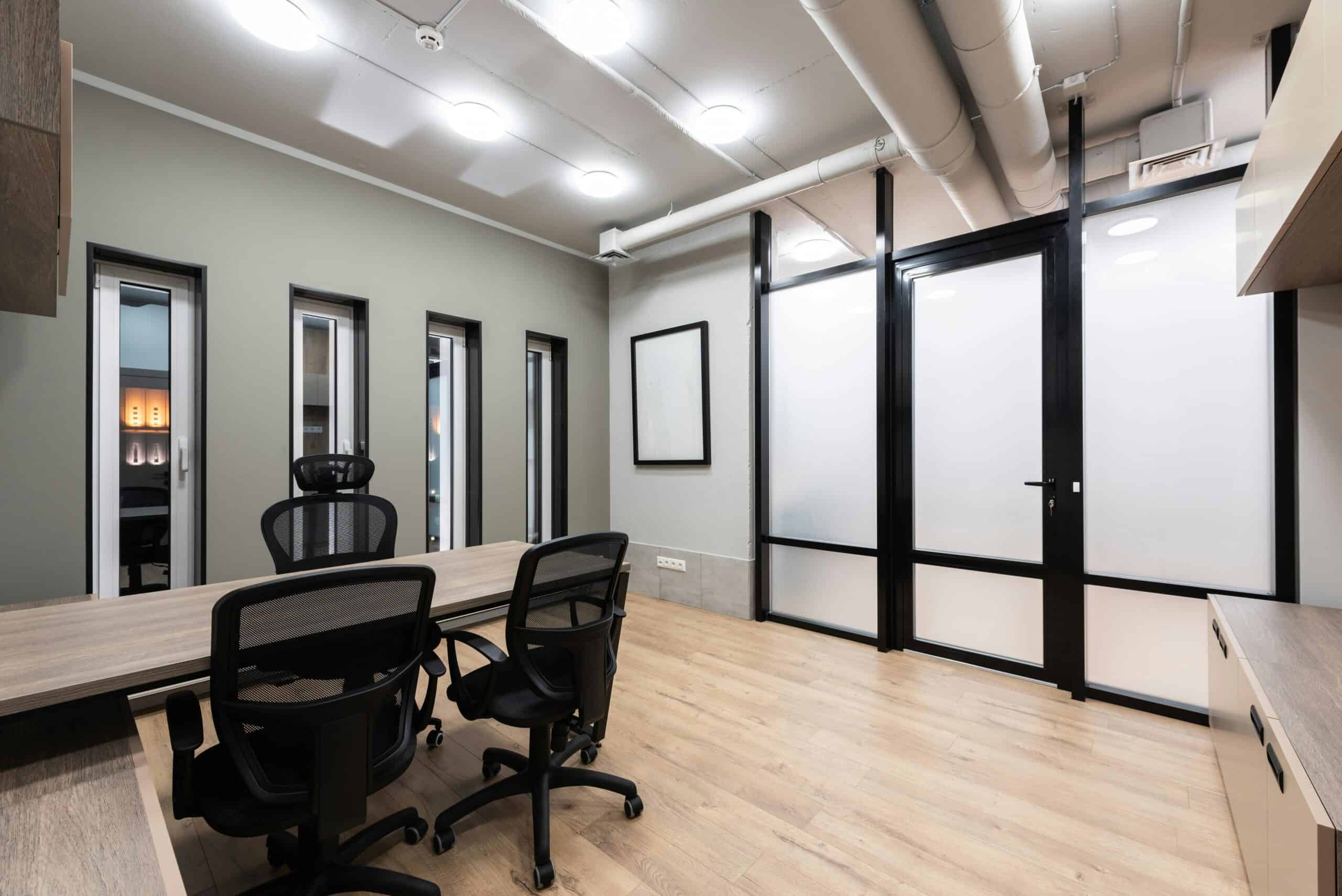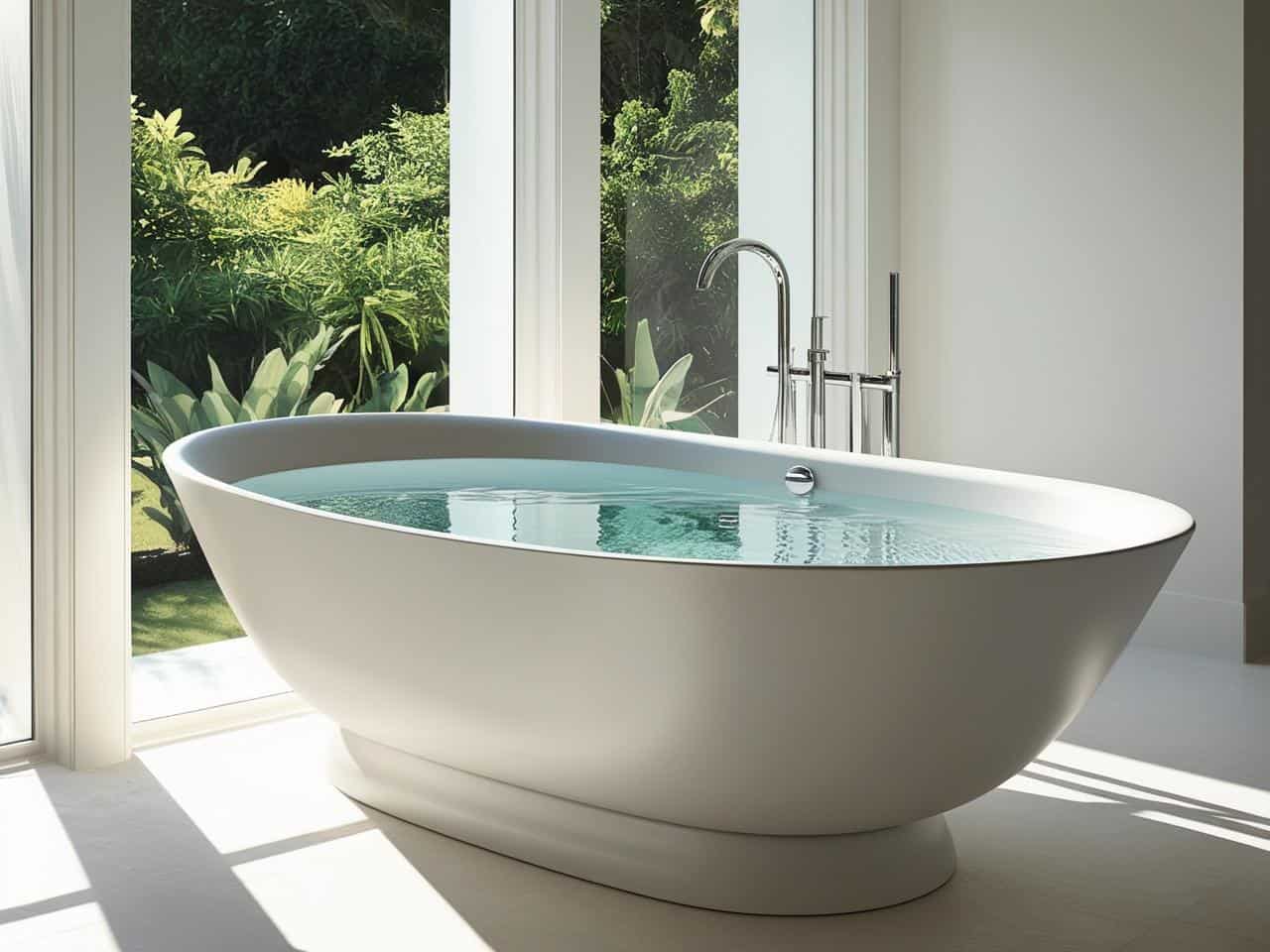When it comes to home remodeling or renovations, the bathroom frequently takes center stage. We all want our bathrooms to be cozy and practical, with everything from opulent bathtubs to revitalizing showers.
But insulation is a significant factor that is frequently disregarded. Your bathroom can become a peaceful retreat by improving its overall comfort, durability, and energy efficiency by choosing the right insulating material.
Among the many insulation options available, three standout products have been recognized for their exceptional performance and features. The Insulation Marketplace Smartshield Reflective Insulation Roll delivers excellent moisture resistance, US Energy Products Double Bubble Reflective Foil Insulation boasts superior thermal insulation properties, and NASA Tech Commercial Grade Radiant Barrier Reflective Insulation is an excellent choice for its outstanding energy-saving capabilities.
We'll go over the different kinds of insulation that are available for both inner and exterior walls of bathrooms in this article, along with their special advantages and things to take into account when choosing the ideal insulation for your requirements.
Is It Always a Good Idea to Insulate Bathroom Walls?
Yes, insulating bathroom walls is an amazing idea. A bathroom's general usefulness, energy efficiency, and comfort can all be enhanced by insulating the walls. The following justifies the benefits of insulating bathroom walls:
1. Moisture Control
Activities like bathing and showering can cause excessive moisture levels in bathrooms. By forming a barrier that stops moisture from penetrating the walls, insulation lowers the possibility of rot, mold development, and structural damage. These problems can be successfully avoided and a long-lasting, healthy bathroom environment can be maintained with moisture-resistant insulating materials.
2. Enhanced Thermal Insulation
Insulating bathroom walls helps improve thermal insulation within the space. It prevents heat loss during colder months and minimizes heat gain during hotter months, creating a more comfortable bathroom environment year-round. Proper insulation reduces drafts, cold spots, and temperature fluctuations, improving temperature control and energy efficiency.
3. Noise Reduction
Bathrooms can be noisy due to running water, flushing toilets, and other activities. Insulating the exterior walls can help minimize sound transmission, creating a quieter and more peaceful environment. This can be particularly beneficial in shared living spaces or bedrooms adjacent to the bathroom.
4. Energy Efficiency
Your home's energy efficiency is increased when the walls in your bathroom are insulated. By decreasing heat gain or loss, the heating and cooling systems can function more effectively, using less energy and lowering utility costs.
5. Increased Privacy
Insulating bathroom walls can also enhance privacy by reducing sound transmission. This is most important if you have thin exterior walls or the bathroom is in a high-traffic area.
6. Added Value to the Property
Insulating bathroom walls can increase the value of your home. Potential buyers or renters appreciate well-insulated bathrooms as they offer improved comfort, energy efficiency, and durability. The wall insulation can also be viewed as a great sign of quality craftsmanship and attention to detail in construction or a bathroom remodel.
Best Insulation for Bathroom Walls
Rank | Product Image | Brand Name | Link |
|---|---|---|---|
1 | |||
2 | |||
3 | |||
4 | |||
5 |
1. Insulation Marketplace Smartshield Reflective Insulation Roll
- EXTREMELY EFFECTIVE - reflect 95% of radiant energy, perfect...
- VAPOR BARRIER -Unaffected by humidity and moisture, can be used...
- SUPREME QUALITY - 3mm closed cell polyethylene FOAM ( not a cheap...
- SOUND BARRIER - excellent soundproofing material.
- NON TOXIC - will not irritate skin, eye or throat. Non allergic.
The Insulation Marketplace Smartshield Reflective Insulation Roll, the best insulation for bathroom walls, has remarkable qualities that enhance overall energy efficiency, moisture resistance, and thermal insulation.
Excellent rigidity from the 3mm foam core made it simple to cut and precisely install on the walls of my bathroom. The size of 48 inches by 10 feet was adequate to cover a significant area, enabling seamless coverage without the need for extra joints or seams.
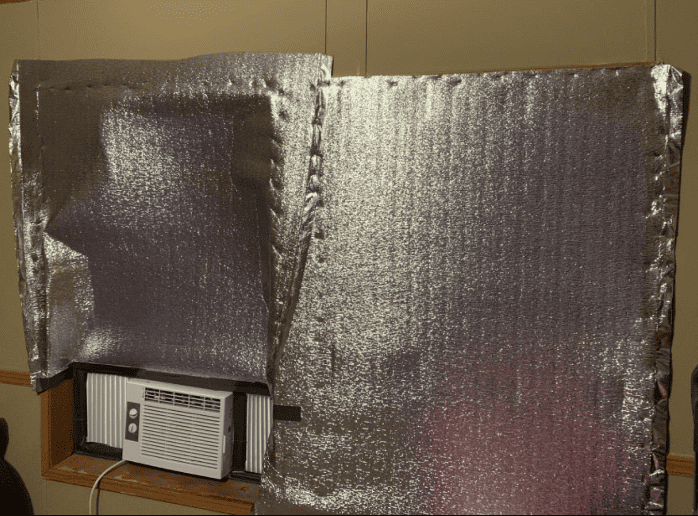
Image Source: amazon.com
One of the standout features is its reflective foil layer. The foil is a radiant barrier, effectively reflecting heat away from the bathroom walls. I noticed a significant reduction in heat transfer, ensuring a more comfortable and consistent temperature within the space.
The SmartSHIELD insulation roll also excels in moisture resistance. The foam core and engineered foil layer prevent moisture absorption and mold or mildew growth.
Pros:
Cons:
2. US Energy Products 48" x 10' Double Bubble Reflective Foil Insulation Thermal Barrier
- Two layers of polyethylene industrialized air bubbles bonded...
- Non-toxic, non-carcinogenic, fiber-free, safe to handle and does...
- Not affected by moisture or humidity. Inhibits condensation and...
- Saves energy by reducing the stress on heating and cooling...
- Made in USA / / Meets all International and USA Fire Codes /...
I am pleased with the performance and general efficacy of the US Energy Products 48" x 10' Double Bubble Reflective Foil Insulation Thermal Barrier, which I have installed on the walls of my bathroom. This insulation solution is a great option for bathroom wall insulation projects since it provides a number of advantages.
Energy Products in the United States Two layers of polyethylene bubbles are encased in two layers of highly reflective aluminum foil to create double bubble reflective foil insulation. The bathroom will have a more constant and comfortable temperature thanks to this design's efficient thermal barrier, which helps to reflect radiant heat and stop heat transmission.
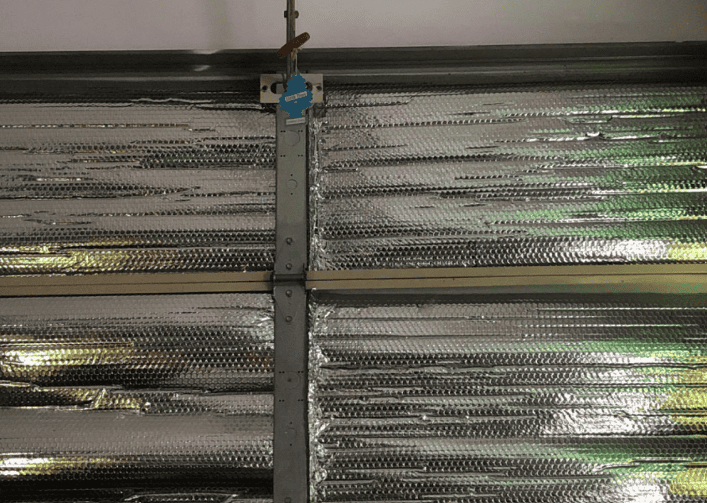
Image Source: amazon.com
I found the installation process to be user-friendly. The insulation comes in a convenient size of 48" x 10', sufficient to effectively cover my interior bathroom walls.
The reflective foil insulation offers excellent thermal insulation properties, helping to keep the bathroom warmer in colder months and cooler during warmer seasons. The double bubble design of the insulation includes a layer of polyethylene bubbles that act as a moisture barrier.
Pros:
Cons:
3. NASA Tech Commercial Grade Radiant Barrier Reflective Insulation
- Perforated No Tear Commercial / Industrial Grade
- 500sqft (4ft x 125ft) Perforated Breatheable Radiant Barrier
- HIGHLY REFLECTIVE: Double-sided and tear-resistant, our foil’s...
- ASTM COMPLIANT: Meets the American Society for Testing and...
- 90-DAY 100% MONEY BACK GUARANTEE. We offer a No Hassle 120-Day...
I thought this insulation's radiant barrier feature was fantastic. My bathroom stays warm in the winter and cool in the summer because to its efficient reflection of radiant heat. This has greatly reduced the need for excessive heating or cooling and helped to maintain a suitable temperature in the room.
The product's durability is a clear indication of its commercial-grade quality. It is remarkably tear-resistant for an insulator made of foil, which makes installation simple.
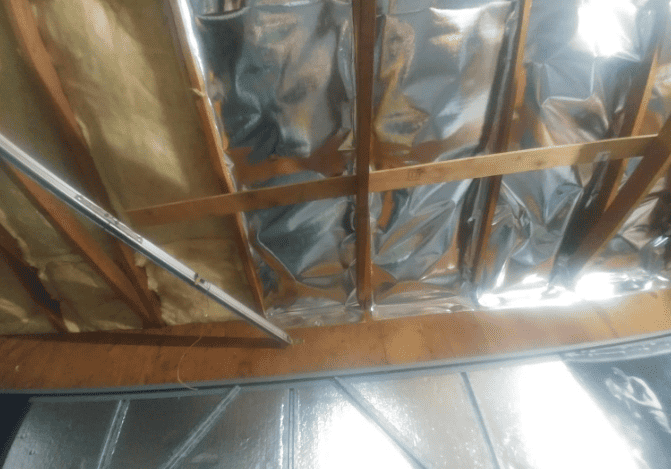
Image Source: amazon.com
The perforations in the material are strategically placed, allowing for proper airflow and preventing moisture buildup. I appreciated the straightforward instructions provided with the product, which guided me through the installation process.
Furthermore, this insulation boasts SCIF (Sensitive Compartmented Information Facility)and RIFD (Radio Frequency Identification) capabilities, which enhance privacy and security.
Pros:
Cons:
4. 2 Pack Owens Corning R-13 Pink Kraft Faced Fiberglass Insulation Roll
- R-13 faced insulation, easy exterior/interior 2x4 wall install
- Fiberglass insulation roll helps maintain temps and control noise
- Pink fiberglass insulation is formaldehyde free and soft to touch
- The greater R-value provides greater insulation performance.
The Owens Corning R-13 Pink Kraft Faced Fiberglass Insulation Roll, which I recently put to insulate the walls of my other bathroom, has surpassed my expectations, I must say.
This product's R-13 insulation grade offers superior thermal resistance, assisting in preserving a suitable bathroom temperature. It efficiently stops heat loss in the winter and maintains a cooler temperature in the summer. Since putting this insulation in, I've seen a noticeable increase in temperature control.
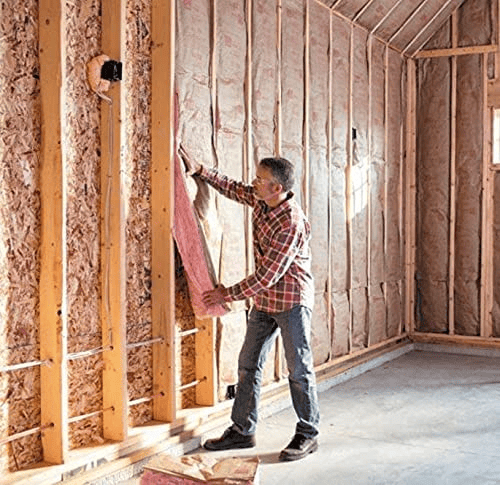
Image Source: amazon.com
The Kraft facing on this insulation roll is a vapor barrier, protecting the walls from moisture intrusion. I have not experienced any issues with moisture-related damage since using this product.
One pleasant surprise with this insulation is its ability to reduce noise transmission. The fiberglass material has excellent sound-absorbing properties, making the bathroom quieter and more private.
Pros:
Cons:
5. EcoRoll 15inch Wide Kraft Faced Fiberglass Insulation Roll
- GREENGUARD Gold certified, free of Red List chemicals and...
- Naturally brown, eco-friendly binder made from corn, sand, and...
- Provides superior thermal and sound control performance. Softer...
- Made from a high degree of post-consumer recycled content
- Kraft facing provides a superior vapor retarder for high moisture...
This roll of fiberglass insulation has outstanding thermal insulation qualities. By lessening the strain on my heating system, I observed a notable decrease in heat loss, which enhanced comfort and helped me save electricity.
The R-13 EcoRoll's ability to reduce sound transmission is one of its main advantages. Sound waves are efficiently absorbed and dampened by the thick fiberglass material, creating a calmer and quieter bathroom atmosphere. This is especially helpful in bathrooms that are close to bedrooms or common spaces, where noise reduction is crucial.
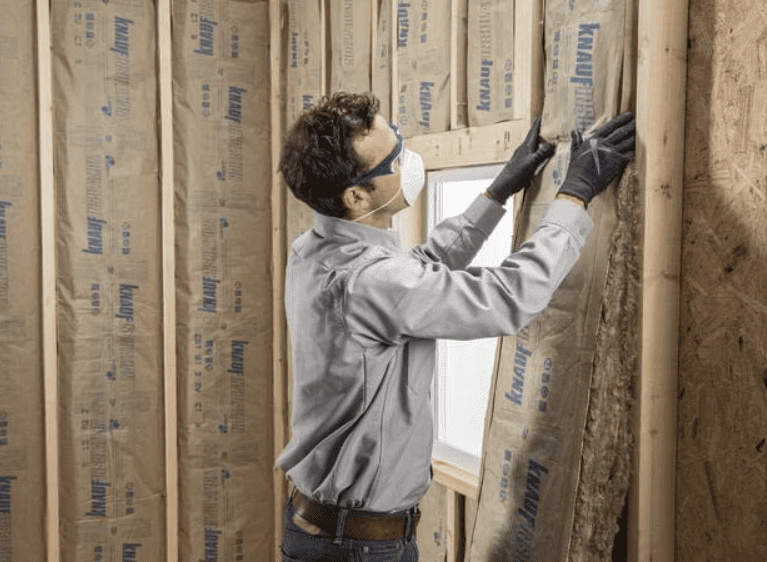
Image Source: amazon.com
The Kraft facing on the insulation roll acts as a vapor retarder, helping to prevent moisture infiltration. I noticed that the insulation helped maintain a dry and moisture-free environment, reducing the risk of mold and mildew growth.
Pros:
Cons:
Types of Insulation for Bathroom Walls
1. Fiberglass Insulation
Fiberglass insulation is made of small glass fibers that are bonded together to create a fluffy substance. Fine glass fibers, typically pink, yellow, or white, make up this substance. Melting glass and spinning it into thin strands creates these fibers. After that, these threads are joined to form rolls or batts of insulation.
Available in rolls or batts, it is simple to cut and install between wall studs. For the best insulation performance and to avoid air gaps, proper sealing is necessary. Installing vapor barriers or moisture-resistant facings will prevent moisture absorption.
Pros:
Cons:
2. Spray Foam Insulation
Spray foam insulation is a versatile and practical option for bathroom walls. It combines two chemical components, polyol resin, and isocyanate. When these components are mixed, they undergo a chemical reaction that expands foam. This foam is then sprayed onto the walls, where it expands and hardens, providing insulation.
Pros:
Cons:
3. Cellulose Insulation
Cellulose insulation is designed from recycled paper or cardboard materials treated with fire retardants. It is treated with fire retardants, such as borate, to improve its fire resistance. The cellulose material is typically densely packed to create an effective thermal barrier.
Cellulose insulation can be easily installed during construction by blowing it into the wall cavities before installing the drywall. Installing a vapor barrier, such as polyethylene sheeting, is important to prevent moisture from migrating into the wall cavities and compromising the insulation's effectiveness.
Pros:
Cons:
4. Rigid Foam Insulation
Polystyrene, polyisocyanurate, or polyurethane foam are rigid materials with excellent insulating qualities that are commonly used to make rigid foam insulation. It is very resistant to moisture and water vapor because it is made of closed-cell foam. The foam pipe insulation has a smooth surface, is lightweight, and is rigid.
Rigid foam insulation is installed directly onto the bathroom walls using adhesives, screws, or both. A separate vapor barrier may sometimes be required to ensure optimal moisture protection. This barrier is typically installed on the warm side of the insulation to prevent condensation.
Pros:
Cons:
Factors to Consider in Choosing the Best Insulation for Bathroom Walls
1. Moisture Resistance
Since bathrooms are high-moisture spaces, choosing moisture-resistant insulating materials is essential. Choose products that are resistant to mold and mildew and have a low rate of absorption. Closed-cell spray foam insulation or fiberglass insulation with a vapor barrier are both excellent options.
2. Thermal Performance
Maintaining pleasant bathroom temperatures is mostly dependent on installing adequate insulation. Examine the insulation's R-value, which represents its resistance to heat. Better insulation is provided by higher R-values, which keep the bathroom cool in the summer and warm in the winter. R-values are often high for rigid foam insulation and closed-cell spray foam.
3. Soundproofing Capabilities
If noise reduction is a concern, choose the best soundproofing insulation with sound-dampening properties. Fiberglass or spray foam insulation can help minimize sound transmission, creating a quieter bathroom space.
4. Fire Resistance
Fire safety is crucial, especially in enclosed spaces like bathrooms. Look for insulation materials that have a good fire resistance rating. Mineral wool insulation is known for its fire-resistant properties and is often used in bathrooms for added safety.
5. Cost and Budget Considerations
Examine the costs of various insulating alternatives while keeping your budget in mind. While spray foam insulation is typically more costly but provides superior performance, fiberglass insulation is typically less expensive. Determine the cost-effectiveness of each alternative by weighing the energy savings and long-term advantages.
Conclusion
Maintaining a cozy and functional bathroom requires selecting the appropriate insulation for the walls. We looked at a variety of insulation materials, each having pros and cons, including fiberglass, rigid foam, cellulose, and spray foam. Although there is no one-size-fits-all solution, insulation that performs well in places that are prone to dampness, produces superior soundproofing, maximizes thermal insulation, or is in line with eco-friendly methods should be given priority.
Frequently Asked Questions (FAQs) on Bathroom Wall Insulation
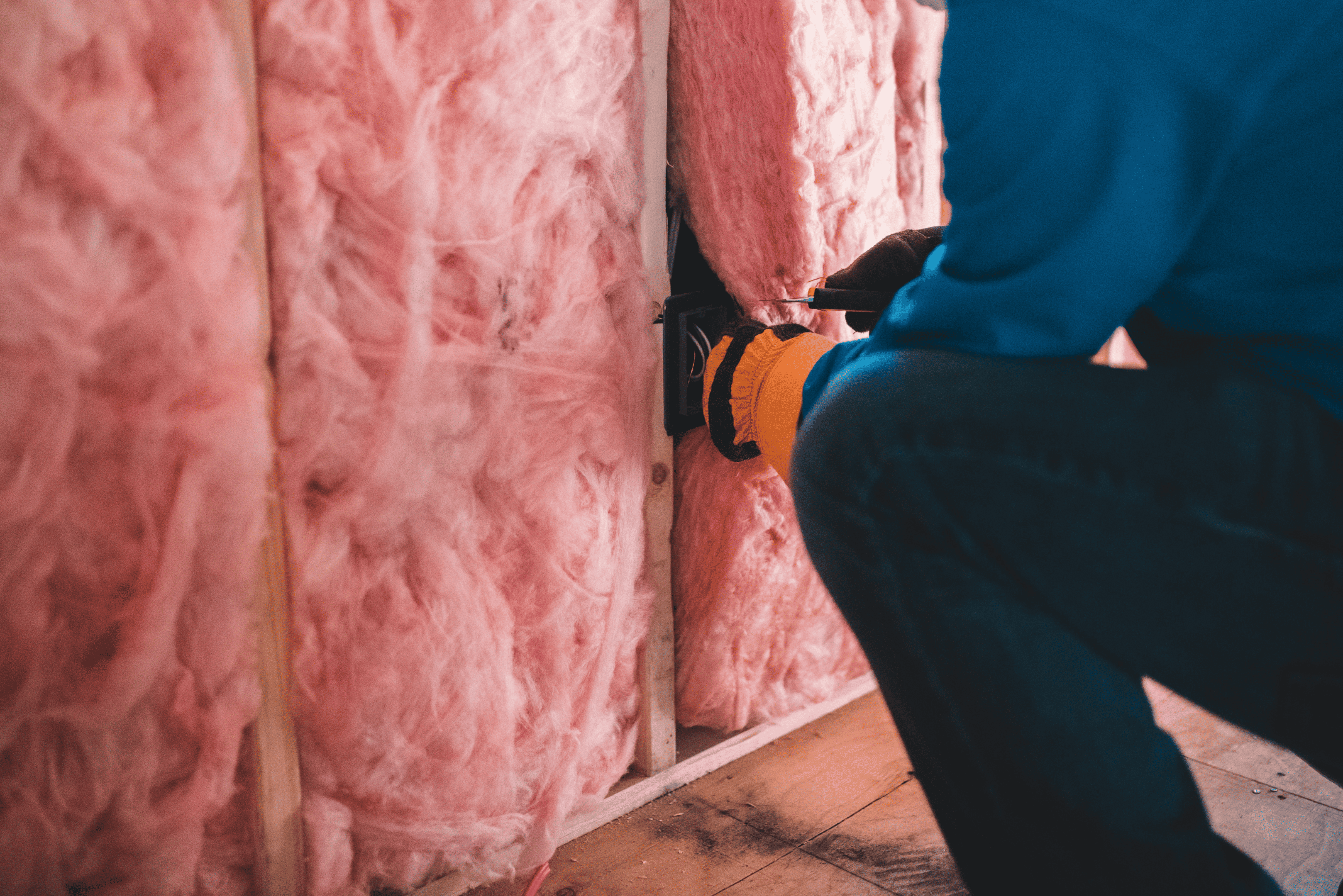
1. What type of insulation do you need for a shower wall?
Selecting insulation for shower walls that is resistant to moisture and can survive in a humid environment is crucial. Shower walls are often insulated with closed-cell spray foam because it offers superior moisture protection and a watertight barrier.
2. What insulation is waterproof?
The following insulation materials are waterproof by nature or have waterproof qualities:
- Closed-cell spray foam insulation: This type is known for its water-resistant and moisture-proof characteristics. When correctly applied, it creates an impermeable barrier against water.
- Rigid foam insulation: Some rigid foam insulation boards have moisture-resistant properties and can withstand water exposure without compromising insulation performance.
